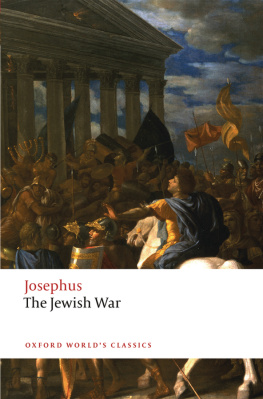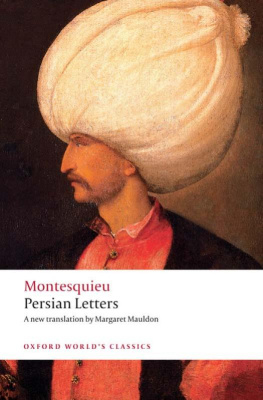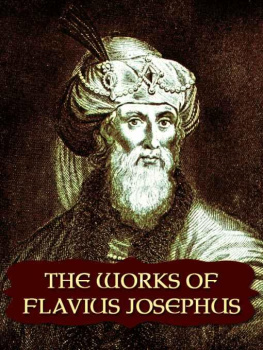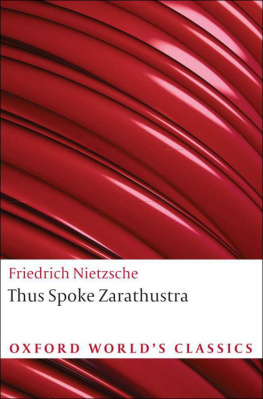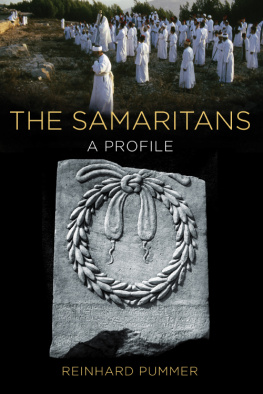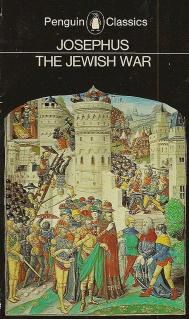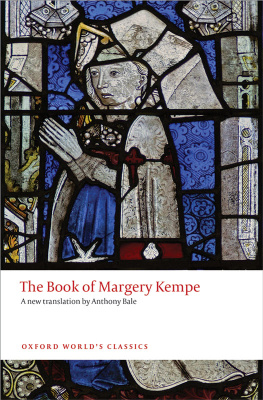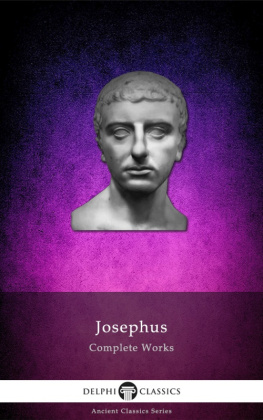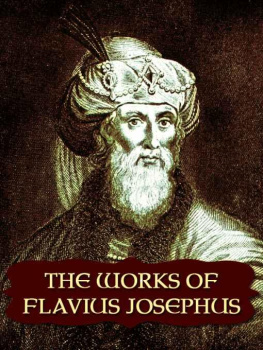Josephus - Oxford Worlds Classics
Here you can read online Josephus - Oxford Worlds Classics full text of the book (entire story) in english for free. Download pdf and epub, get meaning, cover and reviews about this ebook. year: 2017, publisher: Oxford University Press, genre: Religion. Description of the work, (preface) as well as reviews are available. Best literature library LitArk.com created for fans of good reading and offers a wide selection of genres:
Romance novel
Science fiction
Adventure
Detective
Science
History
Home and family
Prose
Art
Politics
Computer
Non-fiction
Religion
Business
Children
Humor
Choose a favorite category and find really read worthwhile books. Enjoy immersion in the world of imagination, feel the emotions of the characters or learn something new for yourself, make an fascinating discovery.
- Book:Oxford Worlds Classics
- Author:
- Publisher:Oxford University Press
- Genre:
- Year:2017
- Rating:4 / 5
- Favourites:Add to favourites
- Your mark:
- 80
- 1
- 2
- 3
- 4
- 5
Oxford Worlds Classics: summary, description and annotation
We offer to read an annotation, description, summary or preface (depends on what the author of the book "Oxford Worlds Classics" wrote himself). If you haven't found the necessary information about the book — write in the comments, we will try to find it.
Oxford Worlds Classics — read online for free the complete book (whole text) full work
Below is the text of the book, divided by pages. System saving the place of the last page read, allows you to conveniently read the book "Oxford Worlds Classics" online for free, without having to search again every time where you left off. Put a bookmark, and you can go to the page where you finished reading at any time.
Font size:
Interval:
Bookmark:

Josephus (born ad 37) was a Jewish priest of aristocratic descent who participated in, and subsequently wrote an eyewitness history of, the catastrophic revolt of the Jews against Roman rule which culminated in the capture and destruction of Jerusalem and its famous temple in ad 70. At the beginning of the war in ad 66, Josephus, then aged 29, was appointed to the rebel command in Galilee. Captured a year later by the Romans in the siege of Jotapata, Josephus saved his life, according to his own account, by a remarkable prophecy that the Roman general Vespasian would become emperor. When this prophecy became true in ad 69, Josephus was given his freedom and attached to the Roman forces under Vespasians son Titus as an intermediary in the final assault on Jerusalem, where he made repeated attempts to persuade the besieged extremists to save themselves and their city by surrender to the Romans.
After the sack of Jerusalem, Josephus accompanied Titus to Rome, and lived there as an imperial pensioner, dedicating his energies to historical writing, not without an element of self-justification. Much of The Jewish War was written and published within ten years of the end of the war. Josephus other major historical work, The Antiquities of the Jews, a history of the Jews from the creation to ad 66 in twenty books, was published in ad 93/4. The date of Josephus death is not known.
Martin Hammond was born in 1944 and educated at Winchester College and Balliol College, Oxford. He has taught at St Pauls School, Harrow School, and Eton College, where he was Head of Classics from 1974 to 1980, and Master in College from 1980 to 1984. He was Headmaster of the City of London School from 1984 to 1990, and of Tonbridge School from 1990 to his retirement in 2005. He has translated the Iliad (Penguin, 1987), the Odyssey (Duckworth, 2000; Bloomsbury, 2014), the Meditations of Marcus Aurelius (Penguin, 2006), and for Oxford Worlds Classics Thucydides Peloponnesian War (2009) and Arrians Anabasis and Indica (2013).
Martin Goodman was born in 1953 and educated at Rugby School and Trinity College, Oxford. He was a lecturer in Ancient History at the University of Birmingham from 1977 to 1986. Since 1986 he has taught Jewish Studies at the University of Oxford, where he has been Professor of Jewish Studies and a Fellow of Wolfson College since 1991 and the President of the Oxford Centre for Hebrew and Jewish Studies since 2014. His books on Roman and Jewish history include The Ruling Class of Judaea (Cambridge, 1987), Mission and Conversion (Oxford, 1993), Rome and Jerusalem (Penguin, 2007), and The Roman World, 44 bcad 180 (2nd edn; Routledge, 2012).
For over 100 years Oxford Worlds Classics have brought readers closer to the worlds great literature. Now with over 700 titlesfrom the 4,000-year-old myths of Mesopotamia to the twentieth centurys greatest novelsthe series makes available lesser-known as well as celebrated writing.
The pocket-sized hardbacks of the early years contained introductions by Virginia Woolf, T. S. Eliot, Graham Greene, and other literary figures which enriched the experience of reading. Today the series is recognized for its fine scholarship and reliability in texts that span world literature, drama and poetry, religion, philosophy, and politics. Each edition includes perceptive commentary and essential background information to meet the changing needs of readers.

Great Clarendon Street, Oxford, ox 2 6 dp United Kingdom
Oxford University Press is a department of the University of Oxford. It furthers the Universitys objective of excellence in research, scholarship, and education by publishing worldwide. Oxford is a registered trade mark of Oxford University Press in the UK and in certain other countries
Translation, Index Martin Hammond 2017 Introduction, Appendix, Explanatory notes Martin Goodman 2017
The moral rights of the authors have been asserted
First published as an Oxford Worlds Classics paperback 2017
Impression: 1
All rights reserved. No part of this publication may be reproduced, stored in a retrieval system, or transmitted, in any form or by any means, without the prior permission in writing of Oxford University Press, or as expressly permitted by law, by licence or under terms agreed with the appropriate reprographics rights organization. Enquiries concerning reproduction outside the scope of the above should be sent to the Rights Department, Oxford University Press, at the address above
You must not circulate this work in any other form and you must impose this same condition on any acquirer
Published in the United States of America by Oxford University Press 198 Madison Avenue, New York, NY 10016, United States of America
British Library Cataloguing in Publication Data
Data available
Library of Congress Control Number: 2016945510
ISBN 9780199646029
ebook ISBN 9780191057601
Printed in Great Britain by Clays Ltd, St Ives plc
Links to third party websites are provided by Oxford in good faith and for information only. Oxford disclaims any responsibility for the materials contained in any third party website referenced in this work.
Josephus was a controversial figure in his own lifetime, and controversy continues to the present day. Was he a traitor to the Jews, an opportunist, or simply a realist? How far can we trust his motives, his judgement, and his accuracy in the account he gives of the Jewish revolt against Roman domination and his analysis of the factors and factions which led to the fall and total destruction of Jerusalem in ad 70? Where, on the spectrum from freedom fighters to rebels to partisans to terrorists, should we place the various groups whose activities from ad 66 to 70 Josephus describes in ever more denunciatory terms? The belligerent tone of much of Josephus unusually long preface (1.130), and his insistent claim to accuracy and truth in his unusually short final paragraph (7.4545), perhaps indicate his consciousness that there was controversial matter within.
What is beyond doubt is that The Jewish War, written by a participant and an eyewitness (or at least an ear-witness) to much of the action, and published only a few years after the events, is a fundamental text constituting our prime source, and sometimes our sole source, for the history of the Jewish revolt and its disastrous outcome, and also an important source for the long reign of Herod the Great and the increasing corruption and oppression of subsequent Roman rule in Judaea. And, though Greek was not Josephus first language, The Jewish War is an accomplished literary work, skilfully written in the traditions of Greek historiography (there are some splendid speeches imagined in the Thucydidean manner), and enlivened by personal interests and a rich variety of digressions and byways. Josephus writes well, in an easy flowing style, rising on occasions to an emotionally charged eloquence, and he knows how to keep his audience. He has a keen eye for drama, and a sensitive and patently genuine response to the pity of things.
Throughout there is ambivalence and the pull of contrary emotions. Josephus is clearly fascinated by Herod the Great, but admiration turns to revulsion as he describes the increasingly deranged king wading through slaughter (of his own family) to keep his throne. Josephus clearly admires the Romans, especially their precision-tooled military machine, but gives good reason for the provocation of the initial revolt from Rome and his own participation in it. His recognition of the inevitability of Romes ultimate victory has him castigating the blindness of the rebel combatants and dwelling on the fate of the non-combatants in Jerusalem who were the victims of that blindness and that victory. His capture by the Romans and subsequent release to act as Titus intermediary in the final assault on Jerusalem blackened his name among many Jews, and once established in Rome as an imperial pensioner he probably never revisited his native land: though granted Roman citizenship, and under an obvious obligation to his Flavian patrons to present their campaign and victory in Judaea in a favourable light, he does not always do so, and he leaves no doubt that his ultimate sympathies, despite all, are rooted in his Jewish birth and upbringing. Josephus has much to say, either directly or in speeches given to others, about the virtues and faults of the Jewish character: the virtues begin his book with the triumphant reclaiming of independence under the Maccabees, but in his view the perversion of those virtues into faults was the main cause of the final catastrophe. In the end Josephus can only blame the disaster on this particular generation of Jews (6.408).
Font size:
Interval:
Bookmark:
Similar books «Oxford Worlds Classics»
Look at similar books to Oxford Worlds Classics. We have selected literature similar in name and meaning in the hope of providing readers with more options to find new, interesting, not yet read works.
Discussion, reviews of the book Oxford Worlds Classics and just readers' own opinions. Leave your comments, write what you think about the work, its meaning or the main characters. Specify what exactly you liked and what you didn't like, and why you think so.

